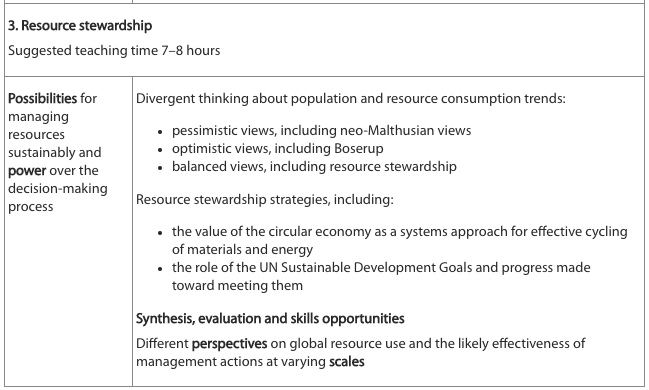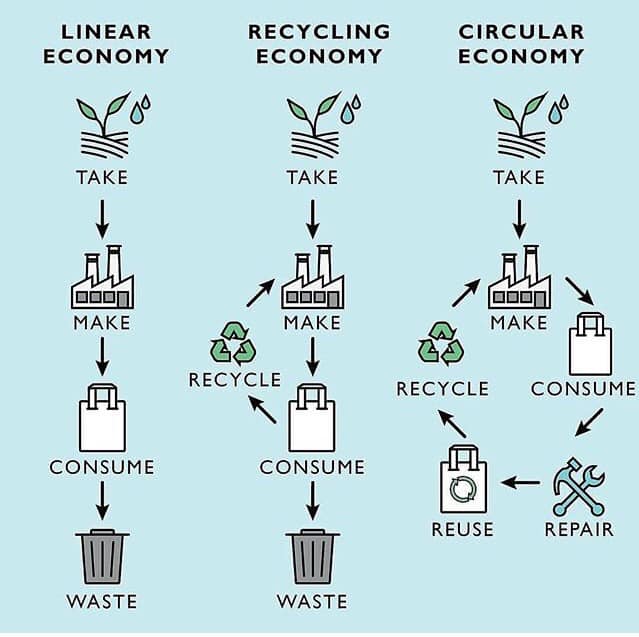3. Resource stewardship
Syllabus Link: Possibilities for managing resources
sustainably and power over the decision-making process
Introduction
Divergent thinking about population & resource consumption trends:

|
|
|
|
Activity: Population vs resources lifeboat
Geofact Sheet: Malthus vs Boserup
Article: How many people can earth support?
Article: Collapse of civilization within decades certain
Article: Empty half the earth of people
Geofact Sheet: Malthus vs Boserup
Article: How many people can earth support?
Article: Collapse of civilization within decades certain
Article: Empty half the earth of people
Resource Stewardship Strategies
|
|
|
|

Current events: Scoopit on resource stewardship
Activity: Resource stewardship case studies
Article: We won't save the world with a different type of coffee cup
Key Terms
The Circular Economy
|
|
|
|
Notes: The circular economy notes
Explore: What is the circular economy?
Case Studies: Examples of the circular economy
Current events: Scoopit circular links
|
|
|
|
Resource Stewardship Strategies Case Studies
|
|
|
|
Website: LOOP - Big brands buy into new scheme
Article: Ikea to rent kitchens
Website: Wongpanit Thailand
Article: Olympic medals to be made of discarded ewaste
|
|
|
|
The UN Sustainable Development Goals
Other Strategies
|
|
|



